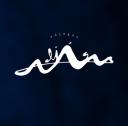ADJÃGAS: Adjágas (Ever Records)
By themilkman
Posted on Jan 12th 2007 05:02 pm
Filed in Albums | Tags: Adjágas, Ever Records
Comments (0)
ADJÃGAS
Adjágas
EVER06CD
Ever Records 2006
09 Tracks. 39mins24secs
Four years ago, Sami artist Mari Boine released a couple of albums on Norwegian imprint Jazzland, including a collection of remixes by the likes of Jah Wobble, Biosphere, Bill Laswell and Nils Petter Molvær and Eight Seasons, a superb collaboration with label founder Bugge Westeltoft. While she adopted a resolutely contemporary sound, her work provided an insight into traditional Sami culture. Living in nomadic tribes on a territory stretching across Northern Norway, Sweden, Finland and part of Russia, the Sami People have suffered a similar fate to the Native Americans, being bought with alcohol and progressively made to adopt sedentary lifestyles. While, in the last twenty years, Scandinavia has proved to be a hotbed of talents, the Sami culture has remained confined to its people.The arrival of Sami duo Adjágas, with their self-titled debut album, released on Ever Records, could very well change all that. Formed in 2004 by Sara Mariella Gaup (23) and Lawra Sombry (26), both vocalists, Adjágas have, with this record carved a fascinating niche for themselves. Using a traditional form of musical expression called the ‘yoik’ or ‘joik’, which relies not on words but on sounds as a mean of expression, the pair recorded this album with various musician friends and producer Andreas Mjøs, whose credentials include working with Susanna & The Magical Orchestra, Jaga Jazzist and Rotoscope.
The nine songs featured here are largely acoustic, providing all the necessary space for the vocal performances to flourish freely. The mood is reflective and hypnotic, with gentle melancholic touches giving a particular relief to each piece. Although branded as an acoustic Sigur Rós, the music of Adjágas is in essence closer to the ritual chants of Native Americans, highlighting the similarities between the two cultures. The songs, part incantations, part tribal calls, develop into captivating little vignettes in which male and female voices dance around each other, at times taking in turn to lead, at others merging into one, dressed in sumptuous swathes of guitars, banjos and occasional percussions. The strong contrast between Sara’s clear and slightly acidic voice and Lawra’s darker guttural tones works interestingly throughout, as each joiker takes it in turn to lead and brings their own textures and flavours to the mix.
The album opens with the gentle sparkling Lihkulaš, but, as the track rapidly gathers momentum as the voices come in, the accompaniment becomes more potent. Later, a similar treatment is applied to Mun Ja Mun, the infectious Ozan, and, to a lesser extent, Suvvi Ijat, which closes the proceedings. The most instantly gratifying moments on the album, these are powerful evocative pieces. Elsewhere, the band adopt a more reflective tone. Songs such as Rievdadeapmi, Guorus Fatnasat or Siivu build on the fluidity of the yoik and pastoral aspect of the music to reveal beautiful cinematic forms. Melodies are at their most fragile here, often appearing as if at breaking point, but, held together by shimmering orchestrations, they continue to thrive until their natural end.
This debut album is truly magnificent; yet, its underwhelming aspect means that it requires time to grow. By continuously building on their powerful roots while applying gentle contemporary brushes, Adjágas have created a beautiful evocative piece of work.
![]() Explore: Ever Record
Explore: Ever Record
![]() Buy: CD
Buy: CD
Filed in Albums | Tags: Adjágas, Ever Records
Comments (0)



